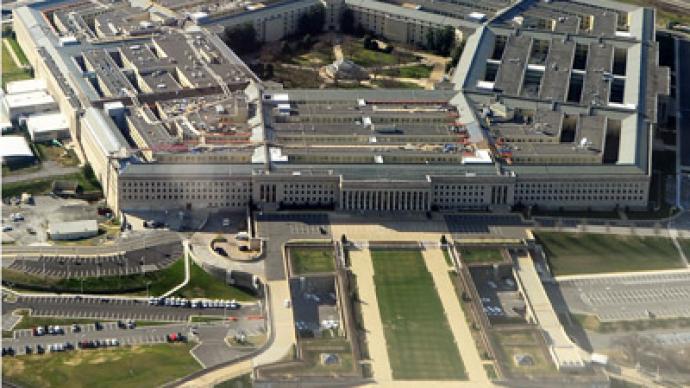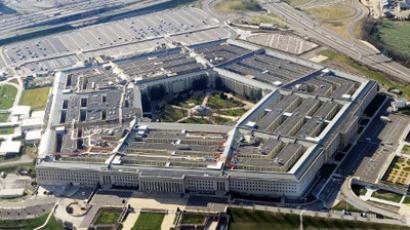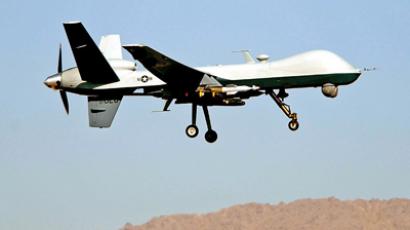Double agents: Pentagon grows CIA twin out of own spy pool

The Pentagon’s spy agency is to be reformed into a military sibling of the CIA with 1,600 clandestine operatives collecting intelligence overseas five years from now. The civilian spies will train and oversee them.
The prime targets for the overhauled Defense Intelligence Agency (DIA) would be Chinese military, Iranian and North Korean arms transfers, and Islamist militant groups in Africa, reports The Washington Post, citing a number of officials. Most spoke on condition of anonymity because of the classified nature of the project.The plan is likely to raise concerns that the expansion of DIA’s clandestine operations will be accompanied by an escalation in lethal strikes and other missions outside public view. There is a potential oversight gap due to differences in legal requirements between military and civilian spies.The Pentagon wanted to beef up overseas DIA operations as early as under Defense Secretary Donald Rumsfeld, but at the time it led to turf conflicts with the CIA. Now the civilian agency is supporting the reform, because it will keep much control over DIA missions.The DIA operatives “for the most part are going to be working for CIA station chiefs,” one congressional official said. A CIA clearance will be needed to enter a particular country or recruit an informant.The military’s interest is to collect intelligence on subjects that the CIA would not cover for some reason. “We are in a position to contribute to defense priorities that frankly CIA is not,” a senior Defense Department official said. Agents with military background are also better suited to recruit sources and collect information on narrow issues, like the particulars of China’s newest weapons.The arrangement “amplifies the ability of both CIA and DIA to achieve the best results,” said CIA spokesman Preston Golson.Together with the CIA resources, which have grown substantially since the September 2001 terrorist attacks, the overhaul would create a spy network of unprecedented size. It reflects President Obama’s affinity for espionage and covert operations over conventional warfare, the newspaper says.The new spy slots for the DIA would be created at the expanse of existing positions in the agency. Over the past decade its staff has doubled to about 16,500, mostly by absorbing different intelligence entities. But it has about 500 “case officers” – the term for clandestine operatives – at the moment. This number is to reach between 800 and 1,000 by 2018.Also included in the 1,600 target are military attaches working at the US embassies, who openly gather information from their foreign counterparts. Their roles would not change, but their share will decline as the number of undercover agents grows.The plan faces some challenges, such as the need to create cover identities for hundreds of new spies.The CIA will be involved in the training of new military spies. Currently they account for about one fifth of the classes at CIA’s facility in Virginia, but the number will grow correspondingly.Private contractors are involved in the overhaul too. In September the DIA hired six security firms, including the former Blackwater, to train agents in “hard and soft skills relevant to living and working in hostile and austere environments.” The agency also increasingly hires civilians to fill in its spy ranks.Officials say the changes were made possible due to a rare synchronization of personalities among top official at the Pentagon and CIA. Many of them switched between the two organizations. The project was spearheaded by Under Secretary of Defense for Intelligence Michael G. Vickers, Pentagon’s top civilian defense official, who served at CIA’s elite Special Activities Division in the past.In addition to the civilian counterpart, the DIA will work closely with the Joint Special Operations Command (JSOC), the military’s elite commando force. The command’s operations in Iraq and Afghanistan benefited greatly from DIA’s analyst resources both in the war zones and back home. Retired three-star general Ronald L. Burgess, who served as DIA director and developed key aspects of the reform, served as intelligence chief to JSOC.Washington is pouring money into its spy networks to save face after recent security failures in the Middle East, believes contributing editor at Harper's magazine, Scott Horton.“What we’ve seen over the last decade, really since 9/11, is a very dramatic increase in spending for the military starting with doubling, essentially, of the CIA budget with about half of that going to contractors,” Horton told RT. “This change in plan actually can be read as an admission of sorts and that the intelligence that’s been collected by this massive apparatus has been very very weak, particularly in the critical Middle East and North Africa region and also in Pakistan. And this is an effort to address this problem, but it also means a continuously ballooning budget for intelligence.”














